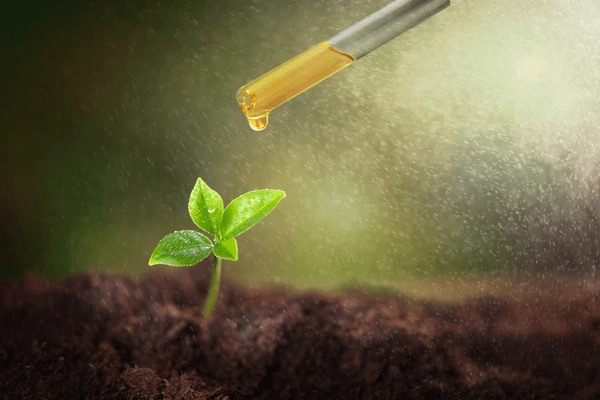Sunday, 22 February 2026

Image Source: Shutterstock
India’s agrochemical industry may be riding high on export performance, but behind the Rs 22,147 crore trade surplus lies a deeper concern: a 53 per cent surge in imports, mainly from China, is threatening the survival of domestic manufacturers.
Now, the Crop Care Federation of India (CCFI)—which represents over 50 of India’s leading agrochemical players—is demanding urgent policy intervention. In fresh representations to the Finance Ministry, CCFI has called for higher custom duties on both formulations (30 per cent) and technical-grade imports (20 per cent), warning that the current regime is undermining the country’s “Make in India” and “Atmanirbhar Bharat” goals.
Despite being designated a “Champion Sector,” India’s agrochemical manufacturing base is being bypassed. Imports jumped from Rs 9,096 crore in 2019-20 to Rs 13,998 crore in 2024-25, eating into a domestic market pegged at Rs 36,000 crore. Producers are operating at just 55 per cent capacity, even though they’ve invested over Rs 40,000 crore in infrastructure and are capable of delivering high-grade formulations at scale.
The loopholes, says the industry, are structural: low duty differentials between finished goods and raw materials, regulatory arbitrage that lets imported formulations skip rigorous quality checks, and the misuse of the “OTHERS” customs category due to the lack of specific HSN codes. Only 57 of over 800 products are currently classified under dedicated codes, leaving room for underreporting and circumvention.
Critics argue that duty hikes could raise prices for farmers, but data suggests otherwise—pesticides account for less than 1 per cent of total input costs. Meanwhile, imported molecules are often two to two-and-a-half times more expensive than locally made alternatives, benefiting foreign manufacturers with profit margins as high as 200 per cent.
The CCFI has urged the government to institute specific HSN codes for all agrochemical products to improve import classification and traceability, withdraw subsidies and financial support for imported formulations that lack domestic value addition, and require mandatory registration of technical-grade pesticides prior to formulation imports. It has also sought export-linked incentives such as duty drawback or rebates similar to those offered by China, and closer oversight on transfer pricing practices by multinational firms that erode India’s tax base.
India recently overtook the United States as the world’s second-largest agrochemical exporter. With decisive and timely policy support, the country could emerge not just as a global supply base—but as a formidable innovator in safe, affordable, and sustainable crop protection.